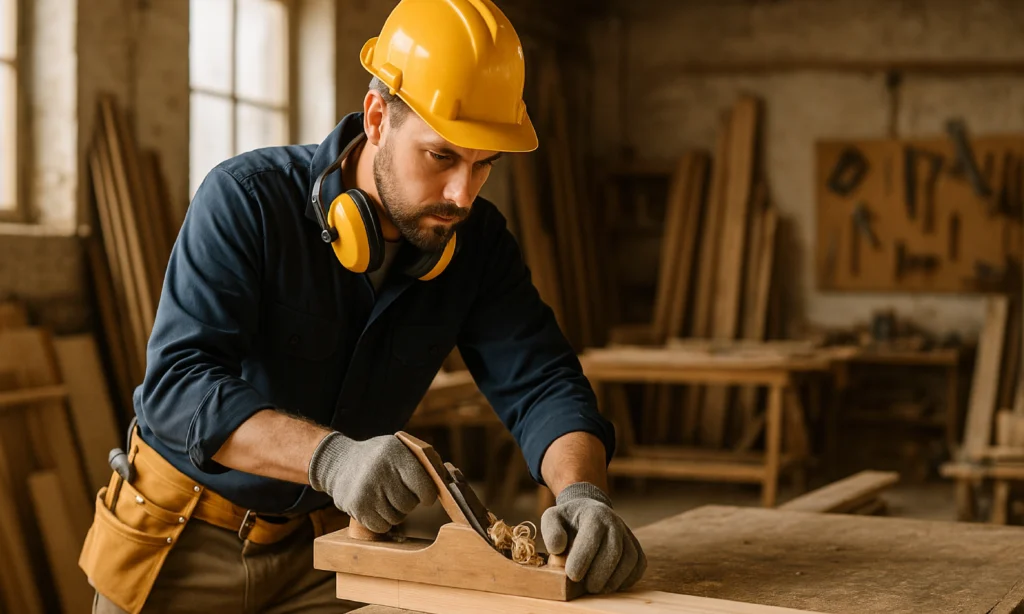Do you want to work as a construction helper in Italy? As a local person who wants to find a job or a newcomer who wants to enter this sphere, construction helper positions are a good chance to get a good job and a stable income. Italy is the right place to start this kind of work due to the high construction industry and the number of projects in the country.
This guide will give you a step-by-step procedure to becoming a construction helper in Italy. You will be informed about the nature of the job, the competencies required, the ways to comply with the law, and the places where you can find vacancies.
What Does a Construction Helper Do?
Laborers or construction helpers are an important component of construction sites. They support highly skilled workers like carpenters, electricians and masons. Although the duties of a construction helper can differ based on the project, his/her duties are usually as follows:
- Transporting and sorting out materials.
- Sites cleaning and preparation (debris and hazard removal).
- The equipment of loading and unloading.
- Helping experienced workers with their duties like measuring and cutting.
- Running of simple tools and machines with supervision.
This job may not need a lot of formal training but it needs physical strength, attention to details and ability to work in a team.
Why Work as a Construction Helper in Italy?
The construction sector in Italy is on the rise now, due to a number of infrastructure projects, city planning, and refurbishment of old buildings. This generates a lot of demand of construction helpers in the country. These are some of the advantages of undertaking this position:
- Accessibility to entry-level jobs: The majority of construction helper jobs do not demand higher qualification, and thus it is easy to join the industry.
- Possibilities of advancement: As one gains experience, construction helpers may advance to the specialized trades or become supervisors.
- Experience with the architecture of Italy: Being based in Italy will enable you to work on buildings of historic value as well as the modern wonders.
Step-by-Step Guide to Becoming a Construction Helper in Italy
Step 1: Understand Job Requirements and Skills
You should get acquainted with the requirements of this position before you decide to pursue this direction. Although it is not a requirement that one has to be educated, there are specific skills and qualities that employers seek:
Key Skills:
- Physical strength and endurance to work under heavy workload.
- Fundamental knowledge in tools and equipments.
- Communication and team work.
- Time keeping and dependability.
Recommended Attributes:
- Readiness to learn in the job.
- Concern to safety.
Even though you may not have these skills, you can take a simple course on construction or safety to equip yourself with the job.
Step 2: Comply with the Law to work in Italy
In the case of the EU Citizens:
When you are an EU/EEA national, then you can work in Italy without a permit. You will however require a Codice Fiscale (Italian tax code) and you might be required to register with the local municipality.
Non-EU Citizens:
You will require a work visa provided that you are not an EU citizen. That goes like this:
- Obtain a job offer by an Italian employer.
- Your employer will make an application of a nulla osta (work authorization) on behalf of you.
- After the approval, go to the Italian embassy or consulate in your country and apply to get a work visa.
- Once one arrives, they should get a Permesso di Soggiorno (residence permit).
Make sure you review existing visa policies and concessions of Italy Decreto Flussi (annual quota of non-EU workers).
Step 3: Get Acquainted with the Safety in the Italian Workplace
Italy is keen on construction safety because of the nature of the industry. Employers tend to prefer the candidates who are aware of the safety regulations. Take into consideration the following:
- To learn about Italian standards in the workplace safety, take a Construction Safety Course (Corso di Sicurezza ed Igiene sul Lavoro).
- Learn simple requirements of personal protective equipment (PPE) including helmets, gloves, and safety boots.
- Get acquainted with basic worker rights in the Italian labor laws.
Safety knowledge or certification would benefit your profile and enhance your possibility of getting a job.
Step 4: Try to Find Training
Although it is not compulsory to have formal education, practical training can make you unique. Investigate the following:
- Apprenticeships:
There are also Italian construction firms that provide on-the-job training or apprenticeship to helpers. These programs enable you to gain skills and get a salary.
- Vocational Schools:
Take vocational classes or training in basic construction or in a given trade such as masonry or carpentry.
- Online Learning:
Such websites as Skillshare and Coursera provide beginners with construction courses. Passing a course is a sign of devotion to learning.
Step 5: Find Job vacancies
You are ready now, so it is time to search job opportunities. These are some of the best ways of job hunting in Italy:
- Job Portals:
Go to the websites such as Indeed, InfoJobs and LinkedIn and search by the term operaio edile (construction worker/helper) to see the listings in the location you want.
- Local Recruitment Agencies:
Seek out the temporary employment agencies (agenzie interinali) that do construction placements.
- Networking:
Visit the local community activities or trade fairs to meet potential employers. The best strategy is to establish networks and find out about unadvertised jobs.
- Door-to-Door:
Go to the construction sites and ask about the vacancies. Most of the smaller construction companies hire helpers in an informal manner.
Step 6: Learn to Fit in the Italian Work Environment
After being employed, this is how you can succeed at your new job:
- Be time conscious and dependable: Projects in the construction industry are usually time bound.
- Memorize some Italian: You will be able to communicate with teammates better with basic proficiency.
- Listen to talented employees: Watch what they do and question them to enhance your ability.
By working hard and taking your time, you will be a great team player and you will be able to make a career out of it.
How to Take the First Step Toward Your New Career
It is possible to become a building helper in Italy when it is properly prepared and has the right attitude. This step-by-step guide will help you to make the right decisions to venture into the booming construction industry in Italy.
Remember to remain active and continue learning even in your career. The greater the skills you acquire the more you can advance in the industry.



